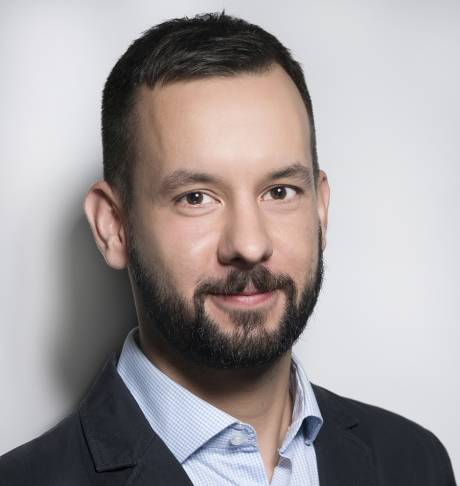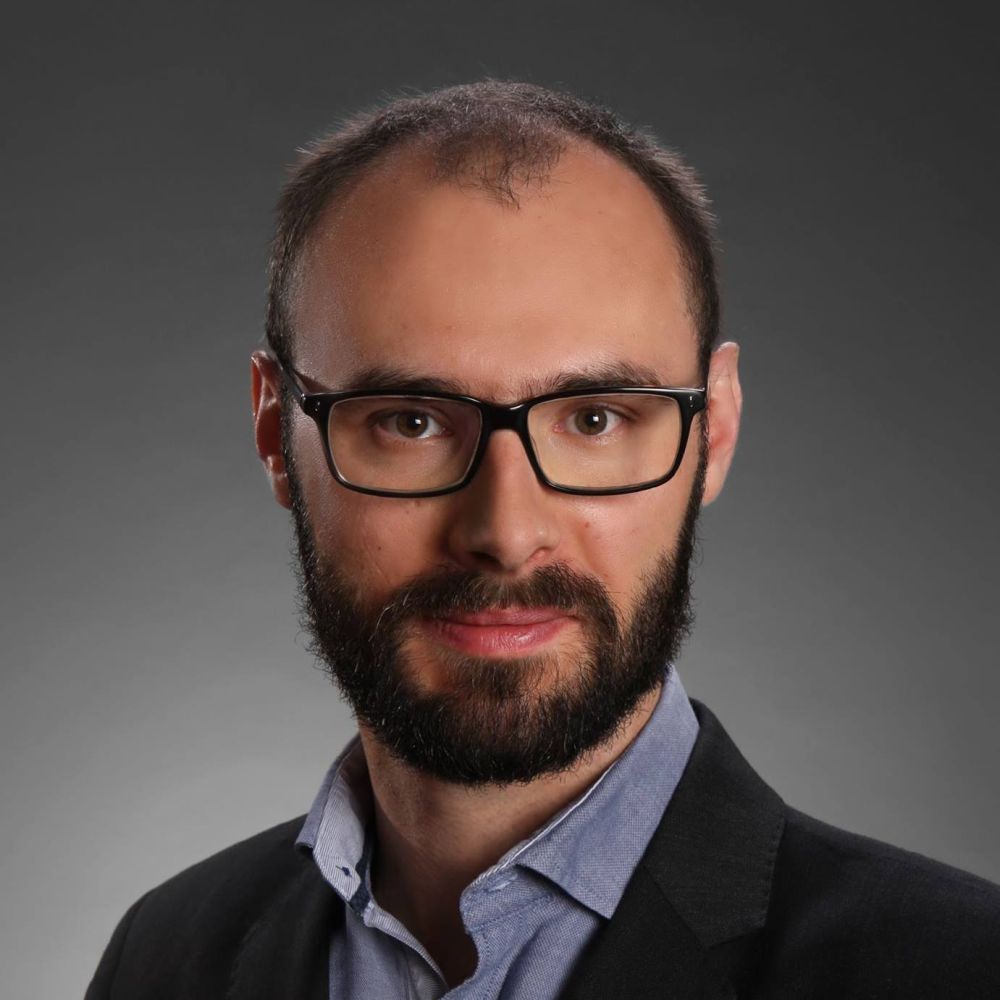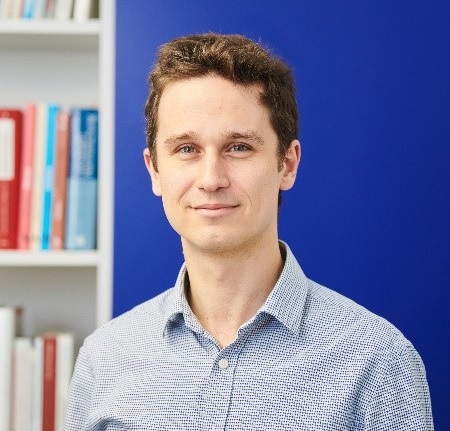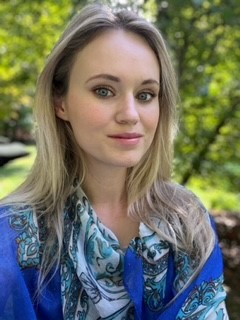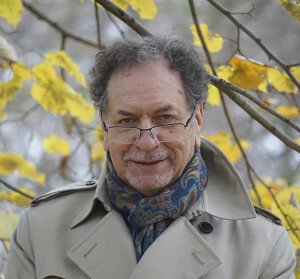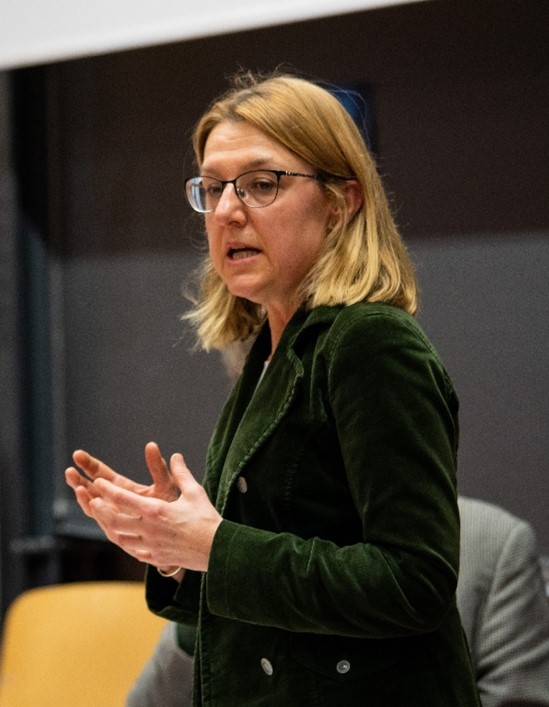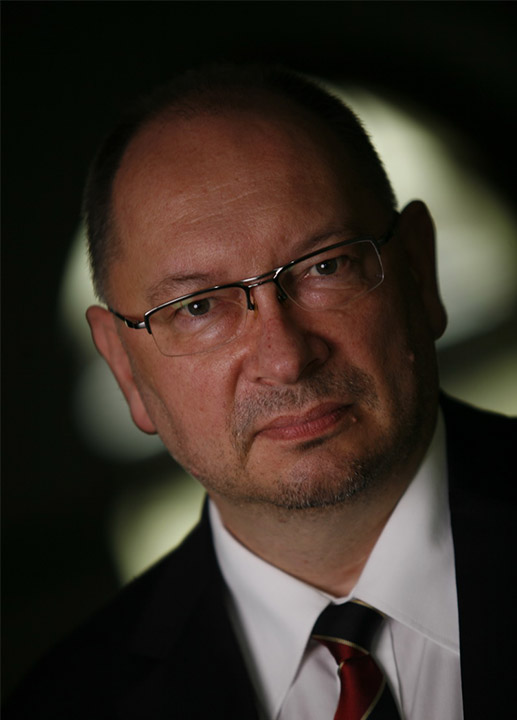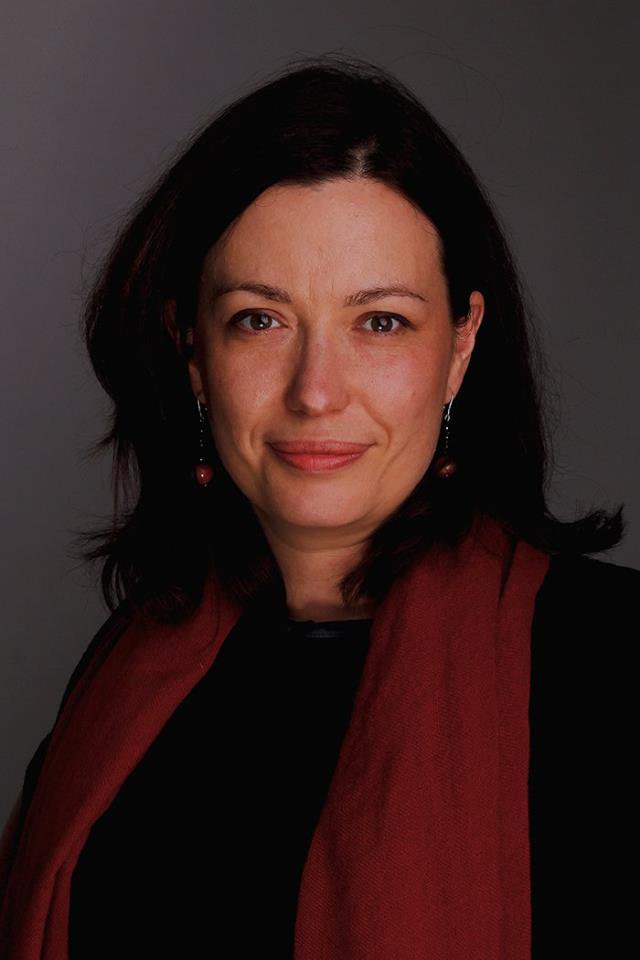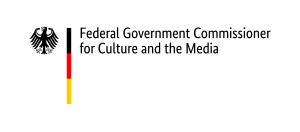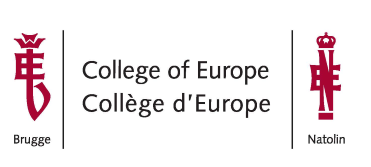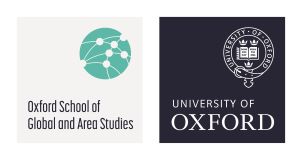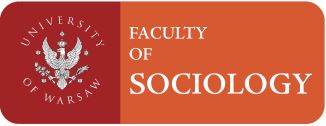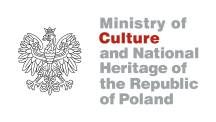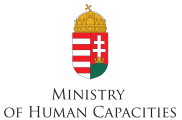Academic Council of the conference
Academic Council of the conference:
Dr Gábor Danyi
Gábor Danyi graduated in Hungarian literature and philology and comparative literature from Eötvös Loránd University, Budapest, where he earned a PhD in comparative literature. His research focuses on cultural resistance in Hungary during the Cold War, with a special emphasis on unofficial publications. He publishes papers in Hungarian, Polish and English. He translates both technical texts and literature from the Polish language into Hungarian. He is the author of a forthcoming Hungarian-language monograph entitled The typewriter and the travelling bag. Samizdat literature in Hungary 1956-1989.
Dr Bartosz Dziewanowski-Stefańczyk
Bartosz Dziewanowski-Stefańczyk graduated in history from Warsaw University and international relations and diplomacy from the Warsaw School of Economics, where he finished his doctoral studies. He also studies at the Albrecht-Ludwigs University in Freiburg. He completed internships at the Polish embassies in Berlin and Washington. He worked for the Royal Danish Embassy in Warsaw, Radio Free Europe / Radio Liberty and the Centre for Historical Research at the Polish Academy of Sciences in Berlin, where he took on, among other roles, the post of Scientific Secretary of the Joined Polish–German Textbook Commission. He is Deputy Head of the Academic Department at the Institute of European Network Remembrance and Solidarity (ENRS) and a Researcher at the Historical Institute of the Polish Academy of Sciences (IH PAN). He is the Main Curator of the international exhibitionAfter the Great War. A New Europe 1918–1923 organised by the ENRS. His fields of research include Polish–German relations, textbook research, Polish foreign politics of memory and cultural diplomacy. His latest publication is A New Europe, 1918–1923: Instability, Innovation, Recovery (London-New York: Routledge, 2022), which he co-edited with Jay Winter.
Dr Piotr Goldstein
Piotr Goldstein is a social scientist working at the intersection of social anthropology, sociology and political science. He received his PhD from the University of Manchester and holds a Master’s in international peace work from the University of Trieste and a Master’s in philosophy from the University of Lodz. Currently, he works at the Centre for East European and International Studies (ZOiS) and at the German Centre for Integration and Migration Research (DeZIM), both in Berlin. At ZOiS he contributes to the MOBILISE Project and heads two projects: on Everyday Activism in Central- and South-Eastern Europe and on Invisible Migrant Activism. At DeZIM he contributes to the VISION Project. He is the author of an article titled Post-Yugoslav Everyday Activism(s): A Different Form of Activist Citizenship?, as well as other articles and essays and two ethnographic documentaries: Active (Citizen), and Spółdzielnia/Cooperative.
Dr Jade McGlynn
Dr Jade McGlynn is a Senior Researcher at the Monterey Initiative in Russian Studies, where she is also the Co-director of the Monterey Summer Symposium on Russia and Director of the Monterey Trialogue Initiative. She holds a DPhil in Russian from the University of Oxford, where she worked as a Lecturer from 2018–2020. Her research focuses on Russian state media discourse and political uses of history in Russia and the wider Eastern European region. Her work often appears in the media (Foreign Policy, The Spectator, The Telegraph) and leading academic journals (Nationalities Papers, Memory Studies). She is the author of a forthcoming book on the politics of memory in contemporary Russia, Memory Makers, due out with Bloomsbury in 2022, and is currently writing a second book, Russia's War, which outlines different reasons Russians support the war in Ukraine. Dr McGlynn is frequently called upon to contribute her expertise on Russian political culture and foreign policy, as well as soft power and public diplomacy, by government institutions (FCDO, MOD), think tanks and NGOs (CSIS, Instituto Real Elcano, British Council), and the media (BBC Russian Service, MSNBC, Times Radio, The Telegraph).
Prof. Georges Mink
Georges Mink is Director of Research at the Institut des Sciences Sociales et du Politique (CNRS – France), Université de Paris X, Nanterre and (from 2015 until today) President of the International Council for Central and East European Studies (ICCEES). He is a sociologist and political scientist specialising in Central and Eastern Europe. His research and publications – comprising more than 250 books, studies and articles – are dedicated to political systems, the socio-political evolution of those regimes, the conversion of ex-communist elites in Central and Eastern Europe and the Europeanisation of national political systems. Today, his research focuses on the question of transitional justice in EU countries. Georges Mink is Associate Professor at Science Po, Paris (since 1973) and Visiting Professor at the College of Europe, Natolin Campus (since 2000). He has also taught at the Université René Descartes Paris V (Sorbonne), at the École des Hautes Études en Sciences Sociales (EHESS) and at the École nationale d’administration (ENA). Moreover, he has been a Visiting Professor at UBC (Vancouver), at the Charles University in Prague, at the Mohyla Academy in Kyiv, at the Von Humbolt University in Berlin, at the University Jose Marti in Havana, at Moscow University, and at Hokaido University. Georges Mink has also lead research teams at the Observatoire Sociologique de l’URSS et de l’Europe de l’Est (OSEUS-CNRS), and the Centre des recherches sur les sociétés postcommunistes (CRESPO-CNRS). Between 2001 and 2003, he worked for the French Foreign Ministry as Director of the Centre Français de Recherches Sociales in Prague (MAE-CNRS). He was Director of the Revue d’Étude comparative Est-Ouest (1999–2004) and was one of the founders of the journal Géopolitique. He is and has been a member of several professional executive bodies, including the administration council of Radio France Internationale (1989–1994), the executive committee of the International Council for Central and Eastern European studies (since 2000) and the Scientific Council of the Social Sciences Faculty, Charles University (since 2001).
Prof. Beata Ociepka
Beata Ociepka is Professor in international relations and international communication and Head of the Public Diplomacy Lab at the Institute for International Studies (ISM), the University of Wroclaw, Poland. Although she has been based at the University of Wroclaw since 1986, she has also served as Chair of the Section of Communication and Public Relations at the University of Warsaw in 2017, as well as Chair in political science at the Willy Brandt Center for German and European Studies at the University of Wroclaw (2002–2004) and Director of the Institute of International Studies (2009–2011) at the same university. She is Head of the International Communication Section of the Polish Association for International Studies (PTSM). The professor specialises in public and cultural diplomacy and international political communication research. She is also currently a Member of the Political Science Committee of the Polish Academy of Science (PAN) for the term 2020–2023. She is the author of about 150 works, including the book Poland’s New Ways of Public Diplomacy (Peter Lang 2017) and her most recent publication: Polens Public Diplomacy, Deutschlands Auswärtige Kulturpolitik und die gemeinsamen Beziehungen (co-published in German in 2022 by the Deutsches-Polen Institut in Darmstadt and Fundacja Instytut Spraw Publicznych in Warsaw, 2022)
Prof. Jan Rydel
Jan Rydel is a historian and his research areas are Central and Eastern Europe and Polish-German relations in the 19th and 20th centuries. He is the author of, among other works: Polityka historyczna w Republice Federalnej Niemiec: zaszłości, idee, praktyka (Politics of History in the Federal Republic of Germany. Legacy – Ideas – Practice) (2011) and Polska okupacja" w północno-zachodnich Niemczech 1945–1948: nieznany rozdział stosunków polsko-niemieckich (The Polish Occupation of North-Western Germany. 1945–1948. An Unknown Chapter in Polish- German Relations) (2000, German edition 2003). Until 2010 he was a Researcher and Professor at Jagiellonian University and is currently a Professor at the Pedagogical University of Cracow. Between 2001 and 2005, he headed the Office of Culture, Science and Information at the Polish Embassy in Berlin. Since 2008, he has been Poland’s representative on the board of the Polish-German Foundation for Sciences. Prof. Rydel is a Member of the ENRS Steering Committee and coordinates the Polish party in the European Network Remembrance and Solidarity (ENRS). He is also member of the international advisory boards of the Bergen-Belsen Memorial and Mauthausen Memorial.
Prof. Joanna Wawrzyniak
Joanna Wawrzyniak, sociologist and historian, specialises in East-Central European memory processes. Her current projects include research on memories of socialism, neoliberal transformation and deindustrialization in Poland, as well as contributions to collaborative research on cultural heritage and memory processes in Eastern Europe, Western Europe and East and South Asia. Joanna has long-standing expertise in oral history and museum research. Her most recent co-authored book in Polish, Cięcia. Mówiona historia transformacji (Cuts: Oral History of Post-Socialism, Wyd. Krytyka Polityczna 2020) won the POLITYKA weekly’s award for the best historical book of 2020. Her work has been supported by grants from the European Commission and national agencies, as well as fellowships at several European universities. Joanna has been the leader of Work Packages in Horizon 2020 projects, ECHOES and DisTerrMem. She is also a member of the Executive Committee of the Memory Studies Association (2019–2022).
Prof. Zheng Wang
Dr Zheng Wang is the Director of the Center for Peace and Conflict Studies (CPCS) and a Professor at the School of Diplomacy and International Relations at Seton Hall University. He is also the Boeing Visiting Chair in International Relations at Schwarzman College, Tsinghua University.
Dr Wang’s research interests lie in three closely connected areas: (1) identity-based conflicts, nationalism and the politics of historical memory; (2) peace and conflict management in East Asia, with a special focus on China’s rise and its impact on regional peace and security; (3) foreign-domestic linkages in Chinese politics and foreign relations. Dr Wang is the author of the book Never Forget National Humiliation: Historical Memory in Chinese Politics and Foreign Relations (Columbia University Press, 2012). This book received the International Studies Association’s Book of the Year Award in 2013.
Dr Wang has extensive professional and academic experience in the Asia-Pacific region. He has been a Jennings Randolph Senior Fellow at the United States Institute of Peace (USIP); the Dr Seaker Chan Endowed Visiting Professor at Fudan University in Shanghai, China; a Carnegie Fellow at New America, and a Public Policy Scholar at the Wilson Center. In recent years, Dr Wang has received multiple highly competitive fellowships and grants from prestigious institutions. The most recent grant award from the Henry Luce Foundation supports his conduction of high-level dialogues and joint research between the US and China over the South China Sea disputes and U.S.-China relations.
Conference Committee
Conference Convenors:
▪ Dr Bartosz Dziewanowski-Stefańczyk (ENRS, Institute of History, Polish Academy of Sciences)
▪ Dr Jade McGlynn (Middlebury Institute of International Studies)
Programme Coordinators:
▪ Dr Małgorzata Pakier (ENRS)
▪ Prof. Joanna Wawrzyniak (University of Warsaw)
Conference Panelists
Zarina Adambussinova is a social anthropologist and a Postdoctoral Fellow of the Volkswagen Foundation in the Department of Anthropology, Technology and International Development at the American University of Central Asia in Bishkek, Kyrgyzstan. Dr. Adambussinova holds a PhD in Central Asian Studies from the Humboldt University of Berlin. Her research interests comprises heritage, memory practices, post-Soviet Central Asia, mono-industrial towns, informal economic practices. Since October 2020, she has been working on her postdoctoral project which is titled Dealing with Uncertainty: Socio-Economic Survival Strategies of Local Residents in post-Soviet mono-industrial Towns in Central Asia (Kazakhstan and Kyrgyzstan).
Monika Albrecht has been holding different positions at the University of Vechta since 2013 (e.g. at the Faculty of the Humanities as well as of Social Sciences). Previously, she had been worked in the same field in the US, the UK and Ireland. Main research areas encompass German culture, history, politics and literature of XX and XXI century, in particular: Critical Post-Colonial Studies; Memory Studies and the politics of memory; multiculturalism and migration; multiculturalism and postcolonialism in comparative perspective; history, memory and minorities in literature. As far as most recent relevant publication are concerned, there has been one, for instance, titled Critical Post-Colonial Studies: Opening Up the Post-Colonial to a Broader Geopolitical View.
Itai Apter received his LLB University of Haifa in 2006 and LLM in International Legal Studies New York University in 2008. Currently he is a PhD Candidate at the University of Haifa, degree expected this year. Also, Itai Apter was a Visiting Scholar at the Washington College of Law of American University in Washington DC, in the Fall 2021 and Winter 2022 terms. The researcher engages in academic research on international relations and international law matters, focusing on international law and international relations and the nexus between international law and politics and history. He presented multiple papers in international conferences and workshops and published sundry articles in eminent academic journals and books.
Phillip Arceneaux received his BA from Louisiana State University, his MA from the University of Louisiana at Lafayette and his PhD degree from the University of Florida. He has consulted on public relations and digital outreach and engagement with a number of agencies across the United States federal government, including the Department of State, Naval Academy, and Central Intelligence Agency. Phillip has also served as a Research Consultant for the Carnegie Endowment for International Peace's Partnership for Countering Influence Operations. Currently, he researches the topics of political public relations and public diplomacy, with supplemental interests in international law, technology policy, and cybersecurity. His work merges political communication and technology policy to develop public policy solutions to issues posed by digital communication infrastructure, such as disinformation, computational propaganda, and influence operations. Phillip’s work has been published in peer-reviewed journals such as ‘New Media & Society’, the ‘Journal of Public Affairs’, ‘Journal of International Communication’, ‘Journal of Public Interest Communication’, and the ‘American Behavioral Scientist’, as well as through multiple book chapters, policy papers, and thought leadership pieces.
Kathrin Bachleitner received her MPhil in International Relations and Economics from the School of Advanced International Studies of Johns Hopkins University, and Doctor of Philosophy in International Relations from the University of Oxford. She is an IKEA Foundation Research Fellow in International Relations at Lady Margaret Hall and Oxford’s Department of International Development (Refugee Studies Centre). Previously, she had worked for the Foreign Ministry in Vienna, developmental agencies in the Palestinian Territories, etc. Her background is in International Relations and Political Science, while her academic interests concern collective identity, memory and values in International Relations, with a regional focus on Europe and the Middle East.
Gruia Bădescu is a Research Fellow at the Zukunftskolleg, University of Konstanz. He holds a PhD from the University of Cambridge, and, before Konstanz, he was a lecturer and research associate at the University of Oxford. His research examines how societies deal with difficult pasts through spatial practices, investigating the relationship between architectural reconfigurations and memory. One focus of his research is urban post-war reconstruction, particularly in the former Yugoslavia and the Middle East. In his PhD at the Cambridge Centre for Urban Conflicts, he examined the relationship between the reconstruction of cities after war and the process of coming to terms with the past, with a focus on Belgrade and Sarajevo. As part of the AHRC-Labex Les Passés dans le présent funded project ‘The Criminalization of Dictatorial Pasts in Europe and Latin America in Global Perspective’, he analyzed the histories of memorialization of political prisons in Southeastern Europe and the southern cone of Latin America. He then became an Alexander von Humboldt fellow, joining Jan and Aleida Assmann´s Balzan Prize research group in Konstanz, ‘Reconstructing memory in the city’ . In Konstanz, he is now a research group leader on cities after political ruptures. His publications have examined urban memory in post-war and post-authoritarian contexts. He is a co-editor of the volume ‘Synchronous Pasts: Transforming heritage in the former Yugoslavia’ (2021) and he is now completing a monograph tracing the relationship between architectural reconstruction and dealing with the past in the 20th century. He is the co-convener of the Memory, Space and Place working group of the Memory Studies Association.
Douglas Becker is an Associate Teaching Professor in the Departments of Political Science and International Relations and in Environmental Studies. His research interests involve historical memory as a research tool on foreign policy analysis and public diplomacy. He guest-edited the Interdisciplinary Journal of Political Studies on Mnemonical Security. He has a chapter entitled The Rationality and Emotion of Russian Historical Memory: The Case of Crimea in ‘Crisis and Change in Post-Cold War Global Politics: Ukraine in a Comparative Perspective’, edited by Erica Resende, Dovile Budryte, and Didem Buhari-Gulmez (with Palgrave MacMillan). He also has published a chapter entitled Memory, Trauma, Identity, and Foreign Policy in ‘Memory and Trauma in International Relations’ (edited by Dovile Budryte and Erica Resende; 2013 Routledge). He teaches courses on peace and conflict, on the importance of historical memory as elements of public diplomacy and image in foreign policy analysis, on the politics of the Global South, on environmental issues, and on the international political economy of multinational corporations. He also is the host of the radio show and podcast Scholars Circle (www.scholarscircle.org).
Dovile Budryte is a professor of political science at Georgia Gwinnett College. Prior to this, from 1998 until 1999, she had been a Fellow at the College for Advanced Central European Studies at Europa University Viadrina in Frankfurt (Oder), Germany. In 2004, Dovile Budryte was a National Endowment for the Humanities grant recipient. Her current areas of interest comprise gender studies, trauma and memory in international relations and nationalism. Publications include articles on gender issues, minority rights and democratization in the Baltic states and five books. One of her latest papers is Memory politics and the study of crises in International Relations: insights from Ukraine and Lithuania (‘Journal of International Relations and Development‘ (2021)).
Tomasz Cebulski, born in Kraków, graduated with his first MA in International Relations from Jagiellonian University, Kraków, with a thesis on Polish-Israeli Relations after 1989. His second MA was at the Jagiellonian University in the Department of Middle and Far East Studies with a thesis on The Role of the Holocaust Memory in Shaping Israeli Identity. In October 2014, he received his Ph.D. from the Department of Political Relations at Jagiellonian University, with a dissertation on Political and International Aspects of the Functioning of the Auschwitz-Birkenau State Museum in the years 1980-2010. In 2000 he founded a research and historical interpretation center POLIN TRAVEL (www.jewish-guide.pl). It focuses and morphs history genealogy and guiding into a holistic visit experience in Central Europe. Tomasz holds multiple state guiding certificates at Museums and memorial sites all over Europe. He is an experienced genealogist and licensed tour leader in Poland and Central Europe. Cebulski is an author of multiple articles on the history of Polish Jews, genealogy, and politics of memory. He is regularly contributing to ‘Times of Israel’ and ‘Jerusalem Post’. Cebulski is the author of a book, Auschwitz after Auschwitz. History, memory, politics. The book debates the dynamic of construction of the Holocaust memory, provides an insight into the Auschwitz Museum through analyzing the politics of commemoration and conflict resolution at the side in the last three decades. In 2020 Tomasz established a visual project ‘SKY HERITAGE PICTURE’S to present historical sites from a new drone vantage point. The films produced by SHP in Gen-FILM-It series are used by museums, educational institutions and in narrating family genealogies. The productions are sharable and involving new digital tools to narrate history. In 2020 Cebulski established the TEEN FLYING UNIVERSITY to promote education of Polish youth. Project is based on teaching values of social diversity and democracy as being rooted in history awareness. Within the project local sites of memory are being discovered, taken care of and interpreted by the youth for the sake of local history awareness, responsibility and education. In 2020-2021 Cebulski in partnership with Humanity in Action developed an educational app ‘10 Stages – Break the vicious circle’ for Polish, German and English speaking youth. The app promotes genocide awareness.
Marek Cichocki is a Professor for Interrnational Relations at Collegium Civitas and Associated Professor at the European Civilization Chair of College of Europe Natolin. Marek Cichocki has been the Research Director of the Natolin European Center in Warsaw and Editor-in-Chief for new ʻNatolin Review’ magazine since 2004. From 2007 to 2010 he served as Advisor to the President of the Republic of Poland Prof. Lech Kaczynski and acted as ’Sherpa’ for the Lisbon Treaty negotiations. He is a permanent Professor at the Institute of Applied Social Sciences of the University of Warsaw. Since 2003, he has also been a publisher and Editor-in-Chief of the yearly Teologia Polityczna. Marek Cichocki has authored sundry books, essays and articles on international relations (Power and Remembrance (2006); Institutional Design and Voting Power in the European Union (2010); Problem of Political Union in Europe (2012), etc.).
Gábor Danyi graduated in Hungarian literature and philology and comparative literature from Eötvös Loránd University, Budapest, where he earned a PhD in comparative literature. His research focuses on cultural resistance in Hungary during the Cold War, with a special emphasis on unofficial publications. He publishes papers in Hungarian, Polish and English. He translates both technical texts and literature from the Polish language into Hungarian. He is the author of a forthcoming Hungarian-language monograph entitled The typewriter and the travelling bag. Samizdat literature in Hungary 1956-1989.
Bartosz Dziewanowski-Stefańczyk graduated in history from Warsaw University and international relations and diplomacy from the Warsaw School of Economics, where he finished his doctoral studies. He also studies at the Albrecht-Ludwigs University in Freiburg. He completed internships at the Polish embassies in Berlin and Washington. He worked for the Royal Danish Embassy in Warsaw, Radio Free Europe / Radio Liberty and the Centre for Historical Research at the Polish Academy of Sciences in Berlin, where he took on, among other roles, the post of Scientific Secretary of the Joined Polish–German Textbook Commission. He is Deputy Head of the Academic Department at the Institute of European Network (ENRS) Remembrance and Solidarity and a Researcher at the Historical Institute of the Polish Academy of Sciences (IH PAN). He is the Main Curator of the international exhibition After the Great War. A New Europe 1918–1923 organised by the ENRS. His fields of research include Polish–German relations, textbook research, Polish foreign politics of memory and cultural diplomacy. His latest publication is A New Europe, 1918–1923: Instability, Innovation, Recovery (London-New York: Routledge, 2022), which he co-edited with Jay Winter.
Iuliia Eremenko is an Assistant Professor at the Faculty of Political Science and International Studies at the University of Warsaw (from October 2022). She was a Postdoctoral researcher at the Trimberg Research Academy at the University of Bamberg from 2020 to 2022. She is a sociologist and political scientist. Iuliia Eremenko defended her doctoral thesis World Cultural Heritage in Germany and Russia: The Experience of Wismar, Stralsund, Veliky Novgorod and Pskov at the University of Bamberg.
Piotr Goldstein is a social scientist working at the intersection of social anthropology, sociology and political science. He received his PhD from the University of Manchester and holds MA in international peace work from the University of Trieste and MA in philosophy from the University of Lodz. Currently, he works at the Centre for East European and International Studies (ZOiS) and at the German Centre for Integration and Migration Research (DeZIM), both in Berlin. At ZOiS he contributes to the MOBILISE Project and heads two projects: on Everyday Activism in Central- and South-Eastern Europe and on Invisible Migrant Activism. At DeZIM he contributes to the VISION Project. He is the author of an article titled Post-Yugoslav Everyday Activism(s): A Different Form of Activist Citizenship? (‘Europe-Asia Studies’ (2017)), as well as other articles and essays and two ethnographic documentaries: “Active (Citizen)”, and “Spółdzielnia/Cooperative”.
Hans Gutbrod has worked in diverse contexts with policy research and think tanks. He holds a PhD in International Relations from the London School of Economics. From 2014, he has worked (via Transparify) to increase the transparency of policy research around the world. Hans had been working as a regional director of the Caucasus Research Resource Centers, from 2006 to 2012, and had also done a great deal of research and consulting across Eastern Europe and in Timor-Leste. Currently, Hans Gutbrod acts as an Associate Professor at Ilia State University as well as a Senior Fellow at the Center for Peace and Conflict Studies at the Seton Hall University.
Nadija Honcharenko is a Senior Research Fellow at the Department of Cultural Heritage and Research & Preservation, Institute for Cultural Research of the National Academy of Arts of Ukraine. She graduated from History Department at the Taras Shevchenko National University; also studied in the Centre for Studies on the Classical Tradition, Faculty of ‘Artes Liberales’ at the University of Warsaw. Her academic interests include cultural studies, history education, memory policy. Also works as editor of publishing series Crimean Tatars prose in Ukrainian.
Marat Iliyasov earned his PhD from the School of International Relations of the University of St. Andrews (Scotland), where he continues to collaborate with the Department of the Middle East, Central Asia and Caucasus. He holds two MA degrees from Vilnius (Lithuania) and Ilia State (Georgia) universities. Presently, he holds a position of a Visiting Scholar at the University of Wisconsin-Madison (Wisconsin-Russia project). His academic interest is situated at the crossroad of several strands of International Relations. He is particularly interested in the questions of Peace and War, Political Demography, Religious Radicalization and De-radicalization, Migration and Identity, and Memory Politics. He has major publications in the journals such as ‘Europe and Asia Studies’, ‘Middle Eastern Studies’, ‘Journal of Muslims in Europe’, and ‘The Frontiers of Sociology’. In his research, Marat Iliyasov explores the possibilities of sustainable peace in Chechnya attaching this question to the current memory politics and demographic trends that are observable in the republic. He mostly uses qualitative methods to research the topics of his interest.
Łukasz Kamiński is a graduate of the Historical Institute of the University of Wrocław. Since 1999, he has been an Assistant Professor at the same Institute. From 2006, Łukasz Kamiński held the position of a Deputy Director of the Public Education Office. On June 10, 2011, the Sejm of the Republic of Poland elected Łukasz Kamiński to be the President of the Institute of National Remembrance. Łukasz Kamiński had worked as the President of the Institute of National Remembrance until July 22, 2016. Research interests of Łukasz Kamiński encompass the issues of opposition and social resistance to the communist regime in 1944–1989. He is the author of monographs, such as Workers' strikes in Poland in 1945–1948 (1999), Poles in the face of the new reality 1944–1948. Forms of extra-institutional, spontaneous social resistance (2000) and Roads to freedom of the Copper Belt (2006). He is a co-editor of the pioneering collective monograph of the communist apparatus of repression in the countries of the Soviet bloc, which was published in English (A Handbook of the Communist Security Apparatus in East-Central Europe 1944–1989 (2005)) and German (Handbuch der kommunistischen Geheimdienste in Osteuropa 1944– 1991 (2009)). Overall, he is an author and co-author of over three hundred scientific and popular science publications.
Tamara Karaia has a PhD in Political Science. She works as an Assistant Professor at Tbilisi State University.
Marek Kornat is a historian, graduate and doctor of the Jagiellonian University in Krakow (2000) and also a Professor of Humanities (appointed in 2015). He works at the Institute of History of the Polish Academy of Sciences (since 2011 as Head of the Department of the History of the XX Century), and teaches at the Cardinal Stefan Wyszyński University in Warsaw (since 2008). He mainly deals with the history of Polish diplomacy and international relations in the XIX and XX centuries as well as with the issues of the Second Polish Republic (1918–1939). The researcher also devotes a lot of attention to the history of Polish political thought, the historiography of totalitarian systems as well as the genesis and importance of Sovietology. He published, inter alia, a few well-rounded monographs: Poland 1939 in the face of the Ribbentrop-Mołotow pact, Polish Sovietological School (1930—1939) , etc.
Félix Krawatzek is a British Academy Postdoctoral Fellow based at the Department of Politics and International Relations of University of Oxford and a Research Fellow at Nuffield College. In his doctorate Félix Krawatzek extensively studied the political relevance of youth mobilisation and the ideas about youth in moments of regime crisis comparing contemporary Russia with other European cases of regime crisis. Currently, Félix Krawatzek is a Senior Researcher at the Centre for East European and International Studies (ZOiS) in Berlin. He's got a long-standing research interest related to collective memory, in particular in the European context and is presently involved in a large project studying migrants’ remittances in a historical perspective. Félix is particularly interested in the role of youth in politics, the significance of historical representation in political processes and questions related to migration and transnationalism. His book Youth in Regime Crisis seeks to understand how political regimes respond to the challenges emanating from youth mobilization.
Eric Langenbacher is a Teaching Professor and Director of the Honors Program at the Department of Government of the Georgetown University, where he successfully completed his PhD in 2002. Since July 2019, he is also a Senior Fellow and the Director of the Society, Culture and Politics Program at the American Institute for Contemporary German Studies in Washington, D.C. Recent publications include Dynamics of Memory and Identity in Contemporary Europe (2015), Twilight of the Merkel Era: Power and Politics in Germany after the 2017 Bundestag Election (2019), The German Polity, 12th ed. (2021). He is also a Managing Editor of German Politics and Society, which is housed in Georgetown’s BMW Center for German and European Studies.
Jie-Hyun Lim is a South Korean historian, writer, and ‘memory activist’, who conceptualized paradigms of ‘Mass Dictatorship’ and ‘Victimhood Nationalism’. He is a Professor of Transnational History and the Director of the Critical Global Studies Institute at Sogang University in Seoul. Since Lim founded the Research Institute of Comparative History and Culture in 2004, he has carried out a series of international projects, including the ‘East Asian History Forum for Criticism and Solidarity’ and the ‘Flying University of Transnational Humanities’. Lately, Lim has been delving into the field of transnational history and memory. Lim has written and edited around two dozen books, including Global Easts: Remembering, Imagining, Mobilizing (Columbia University Press, 2022). He is also a co-editor of Gender Politics and Mass Dictatorship: Global Perspectives (2011), Mass Dictatorship and Memory as Ever Present Past: Mass Dictatorship in the XX century (2014), The Palgrave Handbook of Mass Dictatorship (2016), and Mnemonic Solidarity: Global Interventions (2021), among other works.
Michał Łuczewski has a PhD in sociology. He holds a position of a Deputy director at the John Paul II Thought Center. Presently, Michał Łuczewski works as an Assistant Professor at the Institute of Sociology at the University of Warsaw. Also, the researcher acts as an Editor-in-chief of the magazine ‘Stan Rzeczy’ and is a member of the editorial office of ‘44 / Czterdzieści i Cztery’. Michał Łuczewski is an author of books and publications in sociological, historical and anthropological journals.
Maria Mälksoo is a Senior Researcher at the Centre for Military Studies at the Department of Political Science of the University of Copenhagen. She received her PhD in International Studies from the University of Cambridge (2008) and had previously worked at the University of Kent, Brussels School of International Studies (2016-2021) and the University of Tartu, Estonia (2010-2016). Her primary fields of research are Critical Security Studies (ontological security, securitisation of historical memory, hybrid warfare), political anthropology (liminality, rituals), and social study of deterrence (with a focus on NATO’s eastern flank). She is the author of The Politics of Becoming European: A Study of Polish and Baltic Post-Cold War Security Imaginaries (Routledge, 2010) and a co-author of Remembering Katyn (Polity, 2012). Her most recent articles have appeared in the ‘European Journal of International Relations’, ‘Review of International Studies and the Journal of International Relations and Development’. She is currently editing the Handbook on the Politics of Memory (Edward Elgar) and leading the University of Copenhagen team in the Volkswagen Foundation-supported project 'The Challenge of Populist Memory Politics of Europe: Towards Effective Responses to Militant Legislation on the Past' (MEMOCRACY) (2021-2024).
Harutyun Marutyan is a social/cultural anthropologist, the Director of Armenian Genocide Museum-Institute Foundation, Head Researcher at the Department of Contemporary Anthropological Studies of Institute of Archaeology and Ethnography, National Academy of Sciences of Armenia. He received his first PhD at the Institute of Ethnography, Academy of Sciences of the USSR (Moscow), the second PhD – in 2007 at the Institute of Archaeology and Ethnography in Yerevan. His research interests encompass various topics, such as Armenian Genocide memory, national identity transformation, modern national movements, iconography, inter alia, traditional Armenian culture and poverty. Harutyun Marutyan is the author of three monographs: The Interior of the Armenian Traditional Dwellings (second half of the XIX – beginning of the XX century (Yerevan: Armenian Academy Sciences Press, 1989), The Role of Memory in the Structure of Identity: Questions of Theory (Yerevan: Noravank, 2006) and Iconography of Armenian Identity: The Memory of Genocide and the Karabagh Movement (vol. 1, Chicago: Chicago University Press, 2007); as well as contributor to five collective monographs (among them: Armenian Folk Arts, Culture, and Identity (Bloomington and Indianapolis: Indiana University Press, 2001) and Stalin Era Repressions in Armenia: History, Memory, Everyday Life (Yerevan: Gitutyun, 2015). Also, he has authored more than 130 scholarly articles.
Dimitrije Matić graduated from the University of Belgrade in 2019 with Master’s degree in History. From December 2019 until May 2020 he had worked as a librarian at the Grammar School in a city of Mladenovac. In addition, in 2019, Matic was a Council Member at the International Students of History Association (ISHA) which is based Berlin. Since October 2019 he is a PhD student of History at the Faculty of Philosophy (University of Belgrade). Since 2020, he had been working at the Institute for Recent History of Serbia in Belgrade. He is an Editor-in-chief at KSIO Humanities journal for postgraduates and early career researchers, which presently operates in Belgrade.
Jade McGlynn is a Senior Researcher at the Monterey Initiative in Russian Studies, where she is also the Co-director of the Monterey Summer Symposium on Russia and Director of the Monterey Trialogue Initiative. She holds a DPhil in Russian from the University of Oxford, where she worked as a Lecturer from 2018–2020. Her research focuses on Russian state media discourse and political uses of history in Russia and the wider Eastern European region. Her work often appears in the media (‘Foreign Policy’, ’The Spectator’, ’The Telegraph’) and leading academic journals (‘Nationalities Papers’, ‘Memory Studies’). She is the author of a forthcoming book on the politics of memory in contemporary Russia, Memory Makers, due out with Bloomsbury in 2022, and is currently writing a second book, Russia's War, which outlines different reasons Russians support the war in Ukraine. McGlynn is frequently called upon to contribute her expertise on Russian political culture and foreign policy, as well as soft power and public diplomacy, by government institutions (FCDO, MOD), think tanks and NGOs (CSIS, Instituto Real Elcano, British Council), and the media (BBC Russian Service, MSNBC, Times Radio, ‘The Telegraph’).
Georges Mink is the Director of Research at the Institut des Sciences Sociales et du Politique (CNRS – France), Université de Paris X, Nanterre, and (from 2015 until today) the President of the International Council for Central and East European Studies (ICCEES). He is a sociologist and political scientist specialising in Central and Eastern Europe. His research and publications – comprising more than 250 books, studies and articles – are dedicated to political systems, the socio-political evolution of those regimes, the conversion of ex-communist elites in Central and Eastern Europe and the Europeanisation of national political systems. Today, his research focuses on the question of transitional justice in EU countries. Georges Mink is an Associate Professor at Science Po, Paris (since 1973) and Visiting Professor at the College of Europe, Natolin Campus (since 2000). He has also taught at the Université René Descartes Paris V (Sorbonne), at the École des Hautes Études en Sciences Sociales (EHESS) and at the École Nationale d’Administration (ENA). Moreover, he has been a Visiting Professor at UBC (Vancouver), at the Charles University in Prague, Mohyla Academy in Kyiv, Von Humbolt University in Berlin, University Jose Marti in Havana, Moscow University, and Hokaido University. Georges Mink has also lead research teams at the Observatoire Sociologique de l’URSS et de l’Europe de l’Est (OSEUS-CNRS), and the Centre des recherches sur les sociétés postcommunistes (CRESPO-CNRS). Between 2001 and 2003, he worked for the French Foreign Ministry as the Director of the Centre Français de Recherches Sociales in Prague (MAE-CNRS). He was the Director of the ‘Revue d’Étude Comparative Est-Ouest’ (1999–2004) and was one of the founders of the journal ‘Géopolitique’. He is and has been a member of several professional executive bodies, including the administration council of Radio France Internationale (1989–1994), the executive committee of the International Council for Central and Eastern European studies (since 2000) and the Scientific Council of the Social Sciences Faculty, Charles University (since 2001).
Nour A. Munawar is a postdoctoral research fellow at the Doha Institute for Graduate Studies – Qatar, and a research associate at the Center for Conflict and Humanitarian Studies in Doha – Qatar. Prior joining his current post in Qatar, he was a postdoctoral research associate at Brown University – USA. Munawar was awarded his PhD in heritage studies and conflict archaeology from the University of Amsterdam, the Netherlands in May 2021. He received his MA in archaeology, specialising in heritage management in conflict zones, from the University of Warsaw (Poland), following his MA studies in Near-Eastern archaeology and heritage studies at Leiden University (the Netherlands), and a BA in archaeology from the university of Aleppo (Syria). He worked as an associate research fellow at the UCL-Qatar in Doha (2019-2020). Nour is a UNESCO expert on Safeguarding Syrian Cultural Heritage, and a member of several international organizations, such as ICOMOS, and the European Association of Archaeologists (EAA). His interests include critical heritage studies, politics of the past, uses and abuses of cultural heritage in contemporary history, politics of identity and memory, de-colonialism, archaeology of migration, postcolonialism, and destruction and reconstruction of cultural and archaeological heritage in conflict zones.
Beata Ociepka is Professor in international relations and international communication and Head of the Public Diplomacy Lab at the Institute for International Studies (ISM), the University of Wroclaw, Poland. Although she has been based at the University of Wroclaw since 1986, she has also served as Chair of the Section of Communication and Public Relations at the University of Warsaw in 2017, as well as Chair in political science at the Willy Brandt Center for German and European Studies at the University of Wroclaw (2002–2004) and Director of the Institute of International Studies (2009–2011) at the same university. She is Head of the International Communication Section of the Polish Association for International Studies (PTSM). The professor specialises in public and cultural diplomacy and international political communication research. She is also currently a Member of the Political Science Committee of the Polish Academy of Science (PAN) for the term 2020–2023. She is the author of about 150 works, including the book Poland’s New Ways of Public Diplomacy (Peter Lang 2017) and her most recent publication: Polens Public Diplomacy, Deutschlands Auswärtige Kulturpolitik und die gemeinsamen Beziehungen (co-published in German in 2022 by the Deutsches-Polen Institut in Darmstadt and Fundacja Instytut Spraw Publicznych in Warsaw, 2022).
Małgorzata Pakier, PhD – Head of the Academic Department at the ENRS. She gained her PhD in 2010 at the History and Civilization Department, European University Institute in Florence. Between 2011 and 2017 she created and headed the Academic Department at the POLIN Museum of the History of Polish Jews in Warsaw. Her publications include: „A European Memory? Contested Histories and Politics of Remembrance” (co-ed. with Bo Strath, Oxford, 2010) and „European Memory and Change: Eastern Perspectives” (co-ed. with Joanna Wawrzyniak, Oxford, 2014). She created and coordinates (with J. Wawrzyniak) the Genealogies of Memory conference project since 2011, focusing on theoretical and methodological issues of social and cultural memory studies in Central and Eastern Europe. Her areas of interest are: memory, Holocaust commemorations, and Europeanization.
Vjeran Pavlaković is an Associate Professor at the Department of Cultural Studies at the University of Rijeka, Croatia. He received his PhD in History in 2005 from the University of Washington, and has published articles on various topics (e.g. cultural memory, transitional justice in the former Yugoslavia, and the Spanish Civil War). A Croatian edition of his co-edited volume Framing the Nation and Collective Identity in Croatia (Routledge, 2019) will be published later this year, and other recent publications include The Legacy of War and Nation-Building in Croatia since 1990 in ‘Balkan Legacies: The Long Shadow of Conflict and Ideological Experiment in Southeastern Europe’ (Purdue UP, 2021), and Memory Politics in the Former Yugoslavia in ‘Yearbook of the Institute of East-Central Europe’ (2020). He was also the lead researcher on the ‘Memoryscapes’ project as part of Rijeka’s European Capital of Culture in 2020 and a co-founder of the Cres Summer School on Transitional Justice and Memory Politics. He is currently working on the transnational muralization of conflict, as well as a history of Dalmatian immigrants in the American Southwest.
Tina Peresunko is a Research Fellow at the М. S. Hrushevsky Institute of Ukrainian Archeography and Source Studies, National Academy of Sciences of Ukraine. She is a Fulbright Scholar (New York, 2021), graduate of the “Cultural Diplomacy of the XXI Century” Polish-Lithuanian Studies Program (Vilnius, 2012) and was a fellow of the Polish-American Program at Lane Kirkland (Warsaw, 2011–2012). Her research interests include the history of the cultural diplomacy of Ukraine. She has published two collections of archival documents (in Ukrainian) on the history of the cultural diplomacy of Ukrainian National Republic (1917-1921): ‘Shchedryk’s’ World Triumph — 100 Years of Ukraine’s Cultural Diplomacy (2018) and ‘Shchedryk’ vs. the ‘Russian World’. The Cultural Diplomacy of Symon Petliura: The Mission of Oleksandr Koshyts’s Capella, 1919–1924 (2019).
Alena Pfoser is Senior Lecturer in Communication and Media Studies at the Loughborough University in United Kingdom. Her main areas of expertise include memory in contested settings, heritage and tourism industries, borders and borderlands, and qualitative and arts-based methods. Her work has appeared in several top-ranked peer-reviewed journals (e.g. ‘Memory Studies’, ‘International Journal of Heritage Studies’, ‘Geopolitics and International Journal of Cultural Studies’). She is currently completing a research project funded under the UK ESRC’s New Investigator programme (ES/R011680/1), which examines the production and contestation of memory in Russian tourism to post-Soviet cities.
Bradley Reynolds is a Doctoral Researcher in political history at the University of Helsinki and an associated researcher with the Academy of Finland project, ‘The Baltic Sea Region and the Post Cold War Hysteresis’ (BALTRANS). He conducts researches on international history and decision-makers' memories in Finland and Russia, specifically looking at shifting perceptions of European security in the 1990s and the CSCE/OSCE from a transnational perspective. As a historian interested in the policy relevance of my research, he attempts to get out of the archives as much as possible and cooperate with historically minded political scientists. His overall research portfolio brings him into contact with the contemporary OSCE in a variety of different ways, from OSCE Archive in Prague to the Secretariate in Vienna and field missions in the South Caucasus and Central Asia.
Paula Rhein-Fischer was a Research Assistant at the Institute for International Peace and Security Law at the University of Cologne. She completed her doctoral thesis in 2020 on factual mistakes relating to the exceptions to the use of force under UN Charter law. Her PhD research included a stay as visiting scholar at the Human Rights Institute of Columbia Law School, New York (from August to December 2018). During her legal traineeship (Referendariat, completed in 2021), she worked, inter alia, at the European Commission (Unit for Rule of Law and Justice Policy), at the Ministry for Environment, Agriculture, Conservation and Consumer Protection of North-Rhine Westphalia (Legal service) and at the law firm CMS Hasche Sigle (Dispute Resolution). She is working on the MEMOCRACY Project ‘Challenge of populist memory politics for Europe: Towards effective responses to militant legislation on the past (MEMOCRACY)’ as part of a research consortium between the Asser Institute in The Hague, the University of Copenhagen, the Polish Academy of Sciences in Warsaw and the University of Cologne. She is a reporter for the Oxford Reports on International Law in Domestic Courts and an alumna of the German Academic Scholarship Foundation.
Rafał Rogulski studied cultural and political science at the Universities of Wrocław and Marburg, and participated in the Executive MBA programme at the Polish Academy of Sciences in Warsaw. He was an advisor to Professor Władysław Bartoszewski at the Polish Robert Schuman Foundation and the Ministry of Foreign Affairs. From 2001 to 2005 he had been a secretary of the Culture Department at the Polish Embassy in Berlin. In 2010, Ministers Tomasz Merta and Andrzej Przewoźnik entrusted him with the creation and management of the ENRS Secretariat, which in 2015 became the Institute of European Network Remembrance and Solidarity.
Jan Rydel is a historian and his research areas are Central and Eastern Europe and Polish-German relations in the 19th and 20th centuries. He is the author of, among other works: Polityka historyczna w Republice Federalnej Niemiec: zaszłości, idee, praktyka (Politics of History in the Federal Republic of Germany. Legacy – Ideas – Practice) (2011) and „Polska okupacja” w północno-zachodnich Niemczech 1945–1948: nieznany rozdział stosunków polsko-niemieckich (The Polish Occupation of North-Western Germany. 1945–1948. An Unknown Chapter in Polish- German Relations) (2000, German edition 2003). Until 2010 he was a Researcher and Professor at Jagiellonian University and is currently a Professor at the Pedagogical University of Cracow. Between 2001 and 2005, he headed the Office of Culture, Science and Information at the Polish Embassy in Berlin. Since 2008, he has been Poland’s representative on the board of the Polish-German Foundation for Sciences. Rydel is a Member of the ENRS Steering Committee and coordinates the Polish party in the European Network Remembrance and Solidarity (ENRS). He is also member of the international advisory boards of the Bergen-Belsen Memorial and Mauthausen Memorial.
Aijan Sharshenova is a Postdoctoral Research Fellow of the Volkswagen Foundation at the OSCE Academy in Bishkek, Kyrgyzstan. Sharshenova holds a PhD in Politics awarded at the University of Leeds in UK. Prior to joining the OSCE Academy, she had worked at the UN and UNDP country offices in the Middle East. Her present research project is on Russia’s soft power and public diplomacy in Central Asia. Recently, Sharshenova has published her book The European Union’s Democracy Promotion in Central Asia.
Tomasz Stryjek graduated from the Faculty of History at the University of Warsaw in 1988. From 1988 to 1995 he worked as a history teacher at the Tadeusz Reytan High School in Warsaw. In 1996 he started working at the Institute of Political Studies of the Polish Academy of Sciences, where in 1998 he obtained a doctoral degree. The central topic of his doctoral dissertation was the Ukrainian national idea of the interwar period. In 2008, he received the degree of habilitated doctor. In 2009 he started working at the John Paul II Catholic University of Lublin as a history lecturer specializing in the field of political science. In 2014, he received the Jerzy Giedroyc as a co-author of the book War after war. The Anti-Soviet Underground in Central and Eastern Europe in 1944-1953. These days, he teaches, inter alia, the policy of remembrance and the policy of history in international relations at Collegium Civitas in Warsaw. Tomasz Stryjek is the author of many publications on the history of Ukraine.
Paweł Surowiec, PhD, is a Senior Lecturer in Strategic Communication at the University of Sheffield. He previously worked at Bournemouth University and, as post-doctoral Research Fellow, at Charles University in Prague. His research focuses on questions relating to the reinvention of classical models of propaganda, political campaigning, public diplomacy, as well as changes in European politics. He is the author of Nation Branding, Public Relations and Soft Power: Corporatising Poland (Routledge, 2016) and co-editor of the volumes entitled Social Media and Politics in Central and Eastern Europe (Routledge, 2017) and Public Diplomacy and the Politics of Uncertainty (Palgrave, 2021). His work has been published by ‘European Journal of Communication’, ‘Georgetown Journal of International Affairs’, ‘Diplomacy & Statecraft’, ‘East European Politics Societies & Culture’, ‘Public Relations Inquiry’, ‘European Review of International Studies’, ‘Communication, Culture & Critique’, ‘Journal of Information Technology and Politics’, and ‘East European Politics’. Between 2016 and 2021 he served as Treasurer and board member of the ECREA. He tweets at @PawelSurowiec.
Oleksandr Svyetlov obtained PhD in Ukraine and post-doctoral qualifications in Sweden. He had been researching international relations, politics and history at the University of Maastricht in The Netherlands, at the University of Vienna in Austria and at the University of Tampere in Finland. Since 2011, he has been active as a Council Member at the “Memorial” / Museum of Soviet Occupation in Kyiv. Svyetlov conducted guest research at the Jagiellonian University in Cracow, Poland, Bauhaus in Dessau and the University of Augsburg, Germany Also, he gained a great deal of professional experience as a guest researcher at the University of Dusseldorf and the Berlin Wall Museum in Germany.
Christine Sylvester is Professor of Political Science at University of Connecticut and is affiliated with the School of Global Studies at University of Gothenburg in Sweden. She has worked extensively outside the USA, including at Australian National University (Canberra), the Institute of Social Studies (The Hague, Netherlands), and Lancaster University (UK). Sylvester’s most recent research and writings are on the state of theory in International Relations, war as experience, and art/museums and international relations. She is the editor of the Routledge book series: ‘War, Politics, Experience’. In 2014, Lund University awarded her an honorary doctorate in the social sciences,. Also, in 2016, she was selected as a faculty fellow of the Institute of Humanities at the University of Connecticut. Her most recent keynote addresses (2021) have been at the Barcelona Institute for International Studies and at Cardiff University.
Christoph Teubner was a research assistant at the Chair of Modern and Contemporary History, University of Eichstätt-Ingolstadt from June 2015 until October 2016. In addition, for the period of October 2016 – October 2019, he worked as a research assistant at the Independent Committee on the history of the German Ministry of Agriculture. After this, he gained some more professional experience working as a research assistant at the Chair of Modern and Contemporary History at the University of Eichstätt-Ingolstadt from October 2019 until March 2021. Since April 2021, he has been working as a Research Assistant at the Chair of Modern and Contemporary History at the University of Bonn in Germany.
Zheng Wang is the Director of the Center for Peace and Conflict Studies (CPCS) and a Professor at the School of Diplomacy and International Relations at Seton Hall University. He is also the Boeing Visiting Chair in International Relations at Schwarzman College, Tsinghua University. Wang’s research interests lie in three closely connected areas: (1) identity-based conflicts, nationalism and the politics of historical memory; (2) peace and conflict management in East Asia, with a special focus on China’s rise and its impact on regional peace and security; (3) foreign-domestic linkages in Chinese politics and foreign relations. Wang is the author of the book Never Forget National Humiliation: Historical Memory in Chinese Politics and Foreign Relations (Columbia University Press, 2012). This book received the International Studies Association’s Book of the Year Award in 2013. Wang has extensive professional and academic experience in the Asia-Pacific region. He has been a Jennings Randolph Senior Fellow at the United States Institute of Peace (USIP); the Dr Seaker Chan Endowed Visiting Professor at Fudan University in Shanghai, China; a Carnegie Fellow at New America, and a Public Policy Scholar at the Wilson Center. In recent years, Wang has received multiple highly competitive fellowships and grants from prestigious institutions. The most recent grant award from the Henry Luce Foundation supports his conduction of high-level dialogues and joint research between the US and China over the South China Sea disputes and U.S.-China relations.
Krzysztof Wasilewski is an Associate Professor of political science and media studies at the Koszalin University of Technology, vice-rector for education. His academic interests include international politics of memory, digital memory, and local heritage activism. Furthermore, he has been awarded national and foreign grants and scholarships at several eminent institutions (e.g. the Roosevelt Institute for American Studies, the John F. Kennedy Institute for North American Studies, Cambridge University, University of Michigan (Ann Arbor) and the Polish National Science Center).
Timothy William Waters graduated from Harvard Law School, Columbia University’s Harriman Institute and UCLA. He has been an Alexander von Humboldt Stiftung Research Fellow at the Max Planck Institute for Comparative Public Law and International Law and a Fellow of the American Council of Learned Societies. Currently, he is a Professor of Law at Indiana University, and Associate Director of its Center for Constitutional Democracy. Waters is the author of Boxing Pandora: Rethinking Borders, States, and Secession in a Democratic World (Yale University Press, 2020) and editor of The Milošević Trial: An Autopsy (Oxford University Press, 2013). He was a Peace Corps volunteer in Hungary, and worked at the International Criminal Tribunal for the Former Yugoslavia.
Joanna Wawrzyniak, sociologist and historian, specialises in East-Central European memory processes. Her current projects include research on memories of socialism, neoliberal transformation and deindustrialization in Poland, as well as contributions to collaborative research on cultural heritage and memory processes in Eastern Europe, Western Europe and East and South Asia. Joanna has long-standing expertise in oral history and museum research. Her most recent co-authored book in Polish, Cięcia. Mówiona historia transformacji (Cuts: Oral History of Post-Socialism, Wyd. Krytyka Polityczna 2020) won the POLITYKA weekly’s award for the best historical book of 2020. Her work has been supported by grants from the European Commission and national agencies, as well as fellowships at several European universities. Joanna has been the leader of Work Packages in Horizon 2020 projects, ECHOES and DisTerrMem. She is also a member of the Executive Committee of the Memory Studies Association (2019–2022).
David Wood is a Professor at the School of Diplomacy and International Relations of Seton Hall University. He has over 15 years’ experience in conflict transformation.

